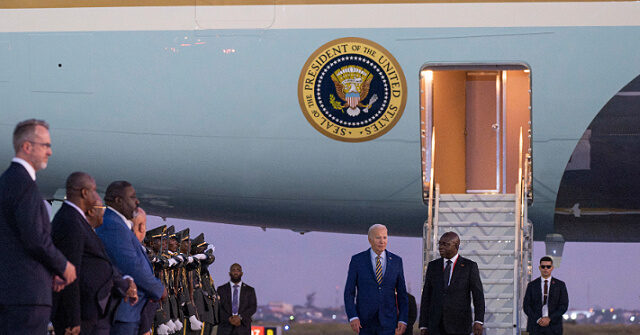On Tuesday, President Joe Biden announced a significant humanitarian aid initiative, pledging $1 billion to assist Africans displaced by extreme droughts and food scarcity. This announcement was made during his address at the National Museum of Slavery in Luanda, Angola, where he emphasized the Biden administration’s commitment to making African voices integral to global discussions. Biden pointed out that the U.S. has successfully included the African Union as a permanent member of the G20, underscoring his administration’s efforts to amplify African representation in key world financial institutions like the International Monetary Fund. This approach signifies a shift in U.S. foreign policy, prioritizing African interests in major international discussions.
In his speech, Biden articulated the moral obligation of the United States, as the wealthiest nation, to provide humanitarian aid and development assistance globally. He noted that the U.S. has a leading role as the largest provider of such aid and is committed to increasing this support, particularly in Africa. This $1 billion aid package aims to address the immediate struggles of African nations suffering from climatic extremes and food shortages, illustrating a response to ongoing humanitarian crises in the region. However, Biden also recognized that African leaders and citizens are seeking more than just temporary relief; they aspire for investment and long-term economic partnerships which go beyond mere aid.
Emphasizing a comprehensive approach to U.S.-Africa relations, Biden noted that his administration aims to transition from purely charitable assistance to fostering trade and investment opportunities. This commitment is a reflection of Biden’s vision for a future in which the U.S. and African nations can build stronger economic ties. By shifting focus to investment, the United States hopes to empower African economies and nurture sustainable growth, which is particularly important in the context of current global economic challenges and geopolitical dynamics.
This announcement of humanitarian aid comes on the heels of recent disasters at home, particularly the destruction caused by Hurricane Helene, which severely impacted communities in North Carolina, Virginia, Tennessee, Georgia, and Florida. While residents in these areas expressed frustration at the government’s response, pointing to a perceived lack of support from emergency management agencies like FEMA, official reports assert that substantial funds, over $45 million, have been allocated to disaster relief efforts. This juxtaposition highlights the complex nature of disaster response—balancing international humanitarian needs with domestic recovery efforts.
The differences in the response to natural disasters abroad versus at home might reflect broader policy priorities and the scope of challenges faced in different regions. While U.S. citizens are grappling with recovering from recent disasters, the international community faces urgent crises that require immediate action. The staggering amounts of humanitarian aid earmarked for Africans displaced by climate change serve as a reminder of the pressing global issues that call for collaboration and coordination among nations, revealing a need for the U.S. to balance both domestic and international commitments effectively.
Ultimately, Biden’s pledge of $1 billion in aid represents a pivotal moment in how the U.S. perceives and engages with Africa. By amplifying African voices in global arenas and recognizing the need for significant investment rather than just aid, the Biden administration is advocating for a more equitable geopolitical landscape. This strategic approach could lead to more sustainable partnerships and a greater sense of shared responsibility in addressing the multifaceted challenges faced by nations affected by environmental and socio-economic crises, both within Africa and globally.

